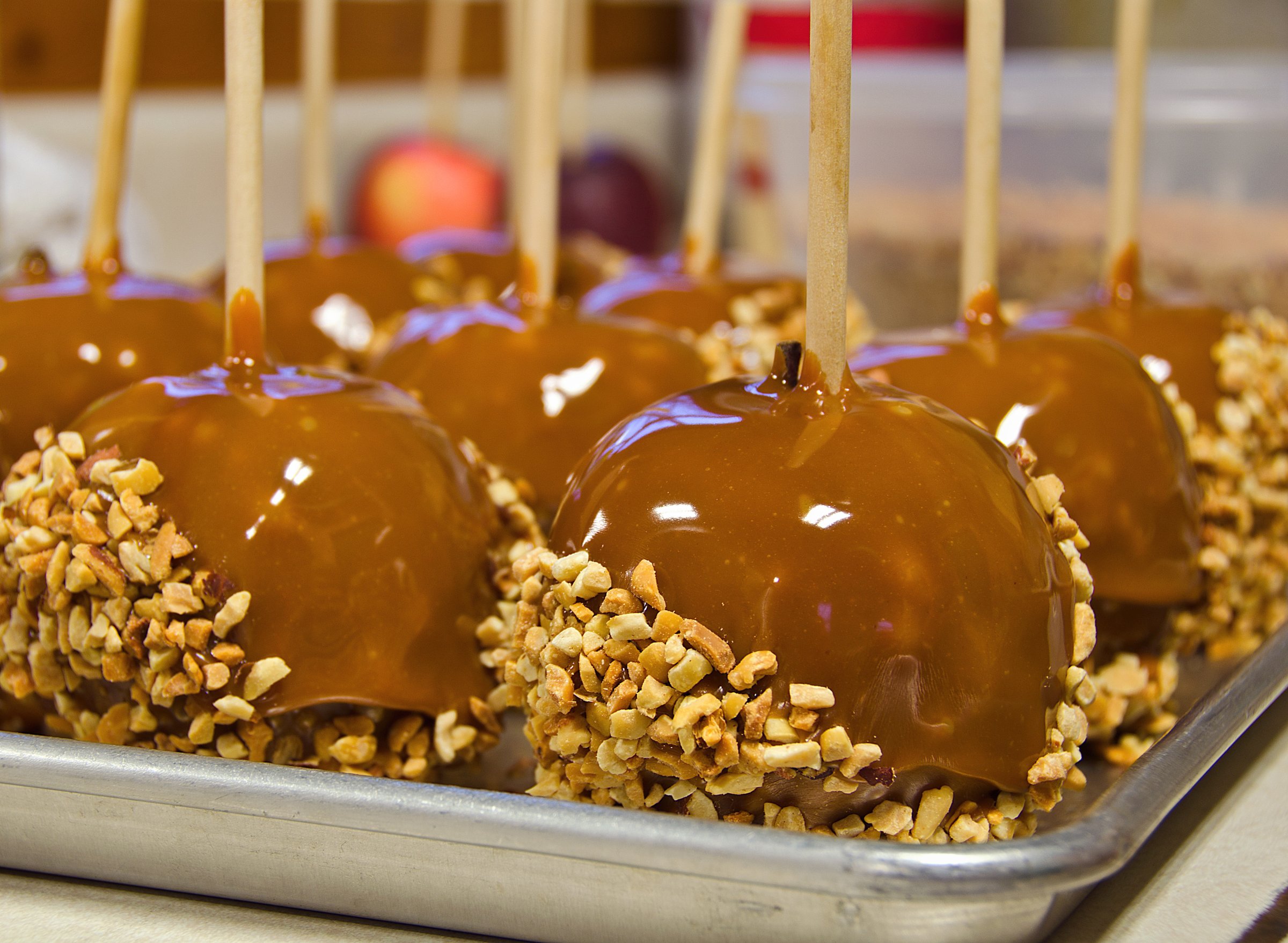
No other snack is more evocative of fall than the caramel apple, but the sweet and sticky treat can have a dark side, according to a new study published in the journal mBio. Caramel apples stored at room temperature can more quickly become contaminated with listeria.
It isn’t the first time: in 2014, an outbreak of listeria linked to caramel apples resulted in seven deaths and 35 sicknesses. In the new study, the researchers chose four of the listeria strains involved in the outbreak and coated them on Granny Smith apples. They then punctured half of the apples with stems and dipped all of them in caramel. For four weeks, the apples were either stored at 77° F (around room temperature) or in a fridge at 44.6° F.
The temperatures—and sticks—seemed to play a role in listeria growth. The refrigerated apples without sticks had no listeria growth at all. But caramel apples with sticks stored at room temperature had bacteria that increased 1,000-fold in three days. Apples without sticks stored at the same temperature had bacteria growth, but at a slower pace. The apples that were refrigerated with sticks had no listeria growth for the first week, but they had some growth over the next few weeks.
The researchers say that shoving a stick into the apple causes some apple juice to seep out into the coating of caramel: a good environment for bacteria to grow.
The study authors suggest that their findings can help inform caramel apple manufacturers of best practices to avoid bacterial growth. Caramel apple fans should keep an eye out for fresh versions—or at least the refrigerated kind.
More Must-Reads from TIME
- Cybersecurity Experts Are Sounding the Alarm on DOGE
- Meet the 2025 Women of the Year
- The Harsh Truth About Disability Inclusion
- Why Do More Young Adults Have Cancer?
- Colman Domingo Leads With Radical Love
- How to Get Better at Doing Things Alone
- Michelle Zauner Stares Down the Darkness
Contact us at letters@time.com